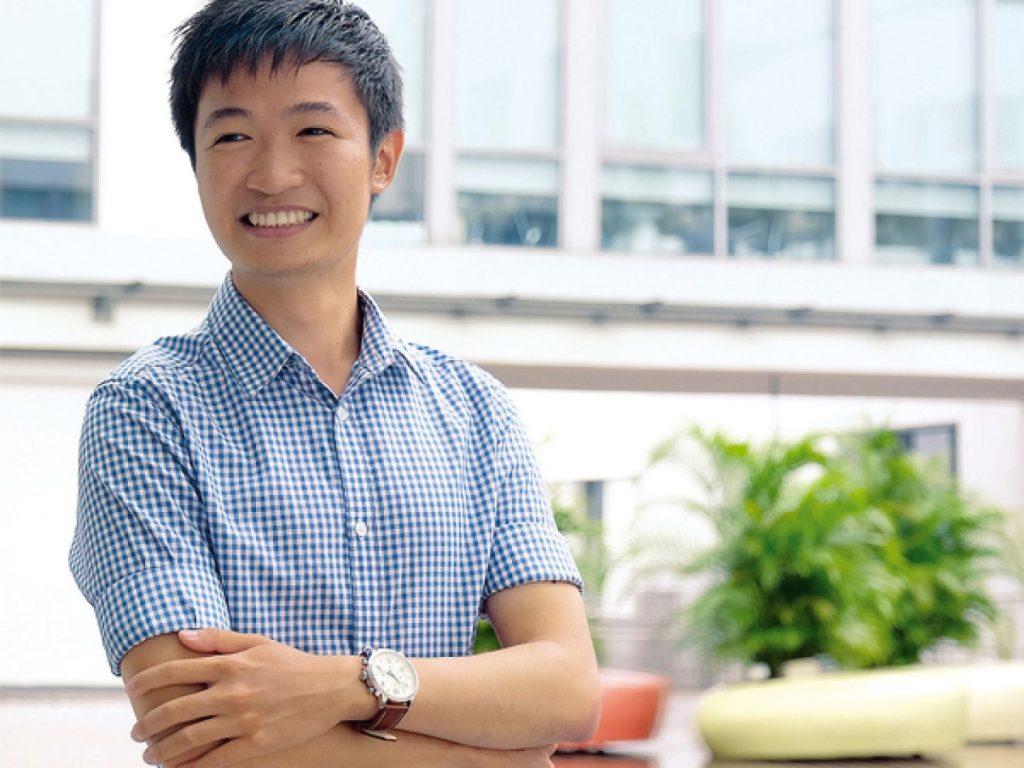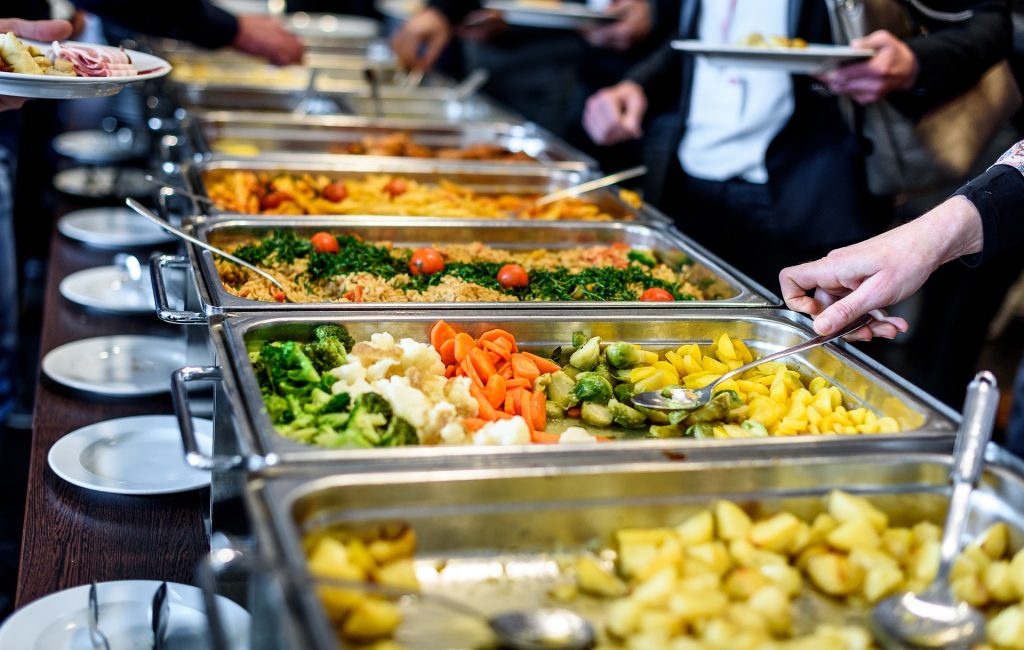
Meet Rayner Loi, 23. He's the founder of Good For Food, an IoT startup that tackles the food wastage problem in Singapore. He tells MIKE ROSS CARROLL about his mission to direct all food to hungry stomachs instead of full bins.
What inspired you to start Good For Food?
The seed was planted when I first began volunteering with social organisations that reach out to youth-at-risk. One particular incident left a lasting impression on me. I had taken a youth out for a meal and then sent him home. When we reached his place, his mother broke down in tears, thanking me profusely. I said to her, “Auntie it is OK, it’s just dinner.” Only then did I find out that—because of their family’s financial situation— she struggles to put dinner on the table.
As I began to think more deeply about food insecurity, I also came across Tristram Stuart’s TED talk about how supermarkets, farms and plantations contribute to global food waste, and felt inspired to do something. Did you know that as many as 1 in 10 people in Singapore are unable to meet basic needs in the form of food, clothing, shelter and other essential expenditures? With that in mind, I simply could not accept or ignore the fact that the average Singaporean is throwing away so much food that is perfectly edible and good for consumption! This spurred me to start Good For Food, a company that harnesses technology and innovation to empower restaurants and kitchens with solutions to reduce food waste and improve bottom lines.
How much food waste are we talking about, and who/what are the greatest culprits?
The National Environment Agency reported that in 2016 alone, Singapore’s food waste amounted to 791 million kg, equivalent to the weight of 3,500 MRT trains! I'd say all-you-can-eat buffets are by far the biggest source of food waste. Not many people realise that as much as half gets thrown away!

Hopefully after reading this article they will. When you started Good For Food, were you at all worried about competition in the sector?
Few start-ups can claim they only have one or two competitors in their space, but in my case, I can. Yet this lack of competition is disheartening, as this goes to show how little time and attention are devoted to tackling the food waste problem. I welcome competition with open arms simply because the market is enormously huge. The dollar value of food that gets thrown away every year is about a trillion, so we’re talking about a trillion-dollar-market opportunity! Certainly there is more than enough room for many more companies to come in with their innovative solutions to tackle the problem from different angles.
Founding Good For Food was really about wanting to make a positive impact on the environment with the reduction of food waste. I thus urge more companies and start-ups to enter this space, not only because of the market opportunity, but also to create meaningful impact.
What advice would you give to young entrepreneurs trying to balance social goals with financial sustainability?
The media paints a glamorous and glorified picture of entrepreneurship, and tends only to report on the 0.001 per cent of entrepreneurs that build successful businesses. However, for every success story that you read, there are many times the number of entrepreneurs who may never ever get the opportunity to receive a pay cheque from their own company. Young people who want to start their own businesses must come to terms with the fact that there is no such thing as financial sustainability. Markets and technology move so fast these days, and you never know when a 16-year-old whiz kid who spends 18 hours a day coding in his basement could build a product that could topple yours.
If you want to start a social enterprise or social tech start-up, please do so for the right reasons, which to me, equates to passion and convictions for the cause you’re fighting for. When the going gets tough (and it will), your passion and convictions are the things that will sustain you.
When did you begin to realise you were helping people and making an impact?
To date, we’ve helped our early adopters see a reduction in their food waste by up to a third within three months, and are looking forward to working with hotels to tackle the buffet food waste issue. But I really first saw the impact in the case of one of our first adopters, who was astonished to discover how much cost he'd saved for his business just by implementing some of our strategies.
A good friend of mine recently approached me for advice about starting his own company. I’m always ready and willing to offer assistance to budding entrepreneurs or anybody who’s just starting out, just because I myself received so much help at the early stages.

Who inspires you the most?
Gary Vaynerchuck, the co-founder of Vayner Media, a digital marketing agency that generates an annual revenue of $150 million. He’s a Key Opinion Leader (KOL) in digital marketing, as well as an early investor in Twitter, Tumblr, Facebook, Snapchat and Uber. He’s the author of #AskGaryVee: One Entrepreneur’s Take on Leadersship, Social Media & Self-Awareness , a book I highly recommend. It covers advice on how to effectively launch a small business, and discusses the importance of self-awareness, embracing a long-term vision, and the hallmarks of a good leader. I found it to be a very inspiring and helpful read.
How hard have you “hustled” in your entrepreneurship journey?
I once pleaded with an organising committee to accept my late registration for a conference on sustainability. In the process, I met the person in charge, who found out about my start-up and connected me with Temasek Holdings’ Head of Sustainability. That led to me discovering that they (Temasek) had put out a grant call for projects surrounding sustainability. I then begged the grant committee to accept my application even though it was already past the deadline. After pitching to the board of Temasek, I received news that they were going to fund my project! We’re not talking about a couple of thousands here, but a truckload of money. Some may call it luck, but I believe I created my own luck by hustling hard.
No bustle without the hustle! What are tech apps or tools you’d recommend to a budding entrepreneur to help them along?
Spotify and Audible. Listen to podcasts and audiobooks on your commute. In addition to Gary Vaynerchuck’s book mentioned earlier, I’d obviously recommend the Gary Vee Audio Experience . I think that as much as skills are important to acquire—you can easily Google how to run a Facebook Ad—one needs to develop the right mindset to put themselves in the best position for success. I’m also a big fan of the audiobook Venture Deals: Be Smarter Than Your Lawyer and Venture Capitalist by Brad Feld and Jason Mendelson. I’ve listened to it at least twice. It’s a great resource for understanding venture capital fundraising.
Finally, how has Good For Food changed you?
Since starting my own company, I’ve really started to see the value of empathy and emotional intelligence. The progress we’ve made with Good For Food wouldn’t have been possible without empathy. It’s really all about understanding my customers, and connecting and networking with other like-minded people and investors.
Mike Ross Carroll was formerly an Assistant Manager (Media and Technology) at the Lien Centre for Social Innovation.








Comments